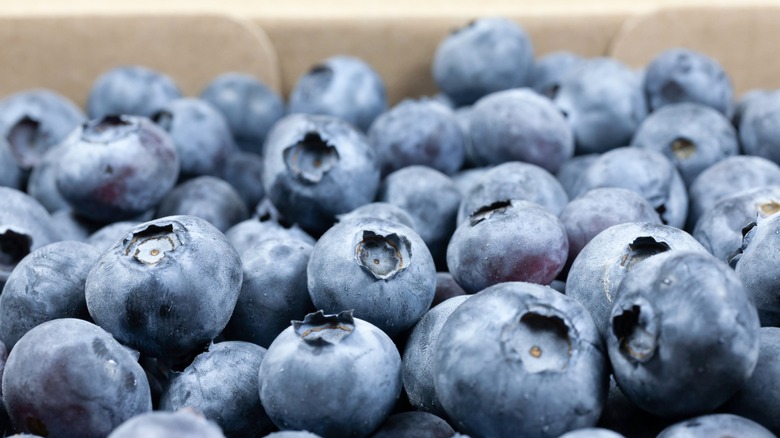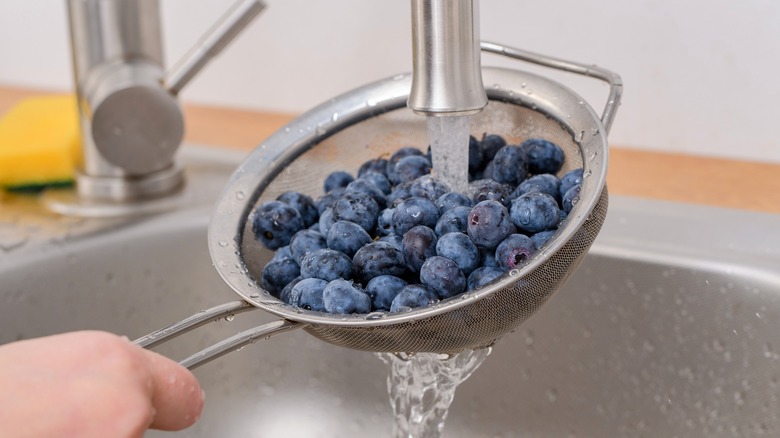Why You Shouldn't Avoid Buying Blueberries With A White Coating
Typically, when you are walking past all the fresh fruit in the grocery store and come across a product with a white substance clinging to its surface, that's a prime indication to keep walking. What else could it be but mold or pesticides? The truth is, not all pale coatings on produce, such as blueberries, are something to avoid. Blueberries often have a waxy, white coating, and not only is it harmless, but it's actually a sign they are fresh.
Don't be confused — sometimes a white layer on blueberries is mold. Yet, when that's the case, the fruit will be fuzzy. When you see a waxy white coating on them, that is usually the bloom. It's a natural defense mechanism that helps keep the fruit from drying out, as well as functioning as a blockade against all the stuff you don't want on your blueberries, like bugs and bacteria. The bloom is perfectly safe to consume raw or in your next colorful blueberry bakes.
On the other hand, if you don't see any bloom on your blueberries, that's not necessarily something to be concerned about either. It just means they may have been handled more before being packaged. Either way, you shouldn't throw caution to the wind and start snacking on them before ensuring they are free of other substances that might be lingering on the surface.
You should still wash your blueberries
Although avoiding blueberries with a white coating is a mistake, that might not be the only thing clinging to the fruit. More often than not, blueberries do a lot of traveling before they hit the supermarket shelves. At every point along the way, they have an opportunity to pick up unwanted germs, insects, and pesticides that you don't want in your mouth.
Before consuming any fruit, you should at least give it a healthy rinse under your kitchen faucet. However, that doesn't mean you should give your blueberries a bath right after you bring them home. Moisture, even in the refrigerator, is a breeding ground for bacteria. The shelf life of your blueberries in the fridge might be shorter if they are stored damp.
Washing blueberries is as simple as dumping them into a strainer and running cold water over them while rolling them around a bit until every surface is clean. You could go the extra mile and briefly soak them in a vinegar solution if they look really dirty, but generally, water will do the trick. If you don't plan on eating them right away, you also want to dry them off as best you can, so you're not encouraging bacteria to make themselves at home on your produce.

